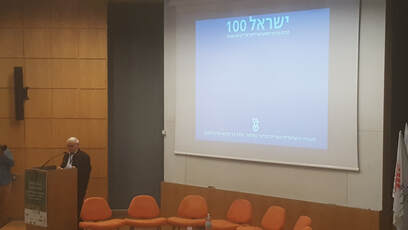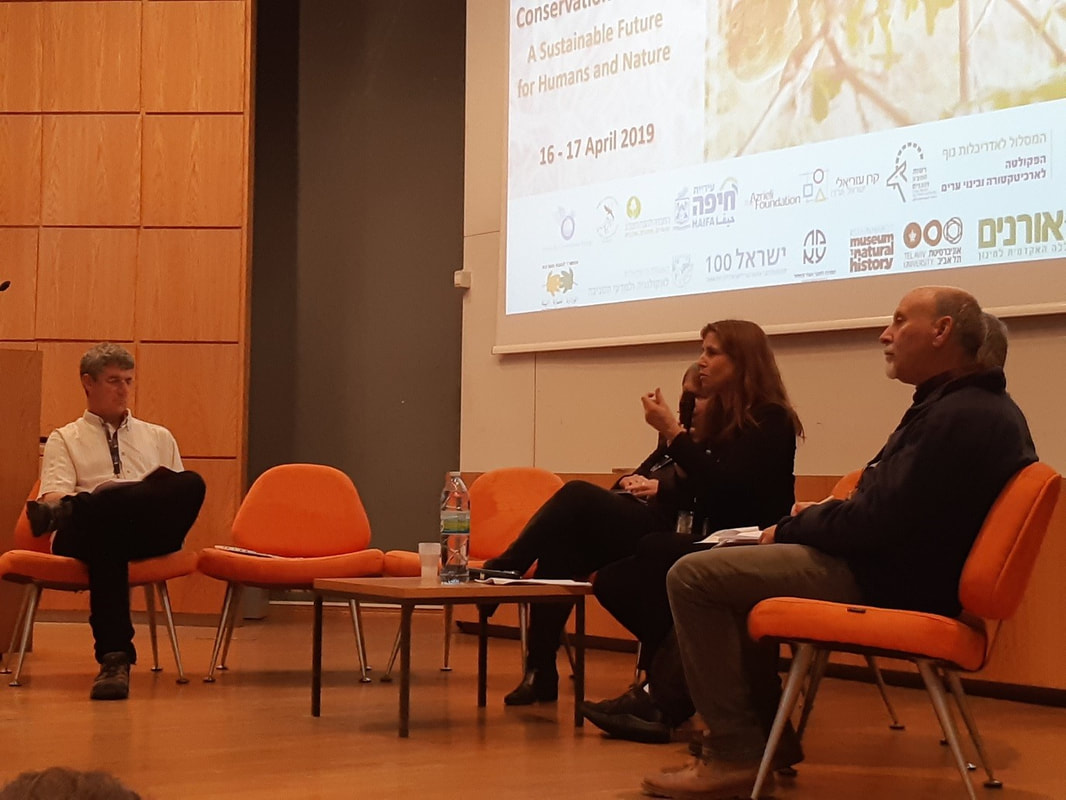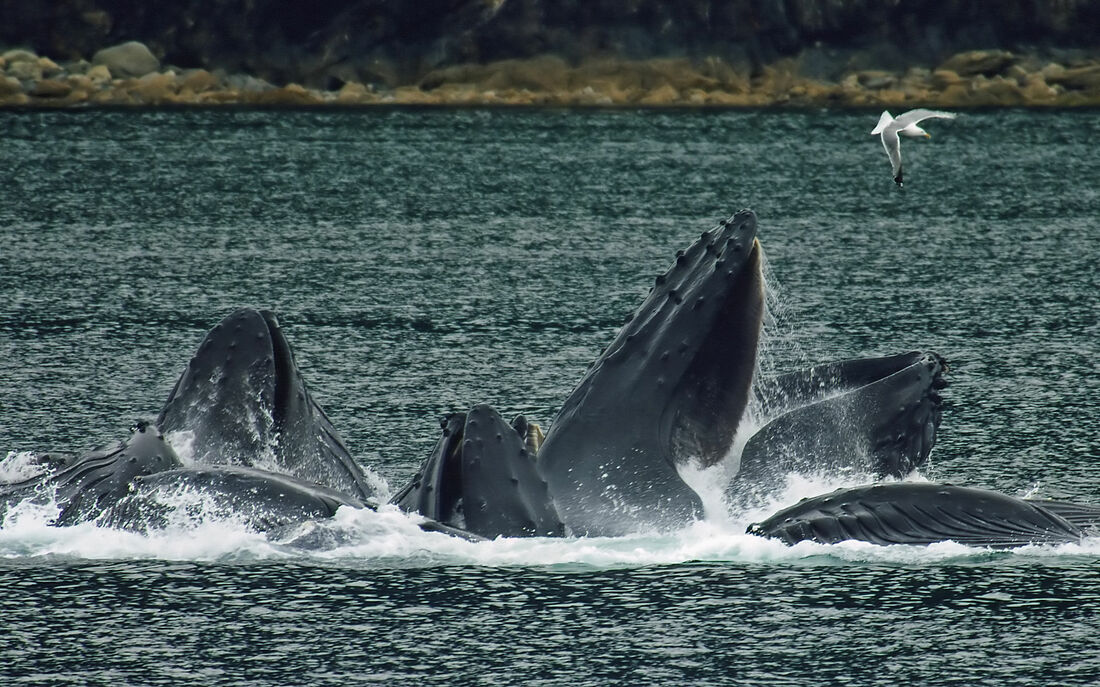 As an intrinsically multi- and interdisciplinary subject, conservation biology can greatly benefit by integrating the work of spatial and strategic planners and by encouraging conservation scientists to participate in planning processes. The 2nd meeting of the Israeli Chapter of the Society for Conservation Biology emphasized the importance of linking biological conservation with strategic planning by featuring a plenum panel discussion on “Israel 100 - Planning, Ecological Thresholds, and Biological Conservation.” Israel 100, a multi-disciplinary and multi-institutional initiative for strategic planning for Israel’s centennial (2048), was presented by Professor Shamay Assif of Technion’s Faculty of Architecture and Town Planning. Assif, as former head of planning at the Israeli Ministry of Interior and former chief engineer of Tel-Aviv (among other positions), has extensive experience in dealing with complex planning issues and has had tremendous influence on national and urban strategic planning in Israel – experience he now brings to his guiding work on Israel 100. Assif shared with the audience the process now taking place to analyze multiple trends and emerging societal needs in Israel, and integrate them into national strategic planning. Ofer Lerner, a professional planner, showed how the Technion is contributing its part to this national effort by identifying particular and crucial societal trends that will need to be addressed in Israel’s near future. Dr. Miri Tsalyuk, currently a post-doctoral fellow at Hebrew University shared her progress on defining ecological “red-lines”, work being conducted with Professors Eran Feitelson and Eli Stern and others. Following the presentations of representatives of the Israel 100 planning team, key figures in the conservation community in Israel were asked to respond, including Dr. Yehoshua Shkedy (Chief Scientist of the Israel Nature and Parks Authority), Professor. Tamar Dayan of Tel-Aviv University, Iris Hann (planner, lawyer and CEO of the Society for the Protection of Nature in Israel) and Professor. Alon Tal of Tel-Aviv University. The panelists challenged our capacity to safeguard biological conservation in Israel with a continuously growing human population. Indeed, as Prof. Assif suggested, Israel 100 needs to plan for building “a second Israel” in order to facilitate for the country’s growing demand for housing, infrastructure and economic development. “Red Lines” were also debated, including whether we can rely on strictly defined reserves and open spaces for long-term biodiversity conservation, or whether conservation must take place at all levels and under all types of land use regimes. The importance of ecological corridors was discussed, with an understanding that some of Israel’s designated corridors are in danger of closing due to encroaching construction and development. The conference keynote speakers, Prof. Kevin Gaston and Dr. Monika Böhm, provided concluding remarks, highlighting the need for clear and specific targets for conservation planning in Israel and urged that the state of biodiversity in the world and in Israel should be seen as in crisis. Importantly, the audience had a chance to see how biodiversity conservation was being discussed and integrated into the strategic planning process, and how they – as conservation scientists – can take a more pro-active role in assuring the prioritization of biodiversity conservation in developing strategic and spatial plans, despite the immense challenges that exist and will emerge in the near future. They suggested that protection of our natural assets must be a fundamental basis for, not an additional component of, the Israel 100 process, and that we – as conservation scientists – should take a more pro-active role in assuring the prioritization of biodiversity conservation in developing strategic and spatial plans, despite the immense challenges that exist and that will emerge in the near future. Prof. Daniel Orenstein Faculty of Architecture and Town Planning, Technion – Israel Institute of Technology Japan has controversially decided to withdraw from the International Whaling Commission and will now switch back to commercial whaling. While the international community abhores this decision, we present here a uniquely positive take on the development, written by the captain of the Sea Shepard. This ‘lawless’ organisation have divided conservationists for many years for their patrolling, halting, and sabotaging the research whaling efforts in the Southern Ocean.
Sea Shepherd Statement from Capt. Paul Watson Sea Shepherd is pleased to see that Japan is considering withdrawing from the I.W.C. and will openly hunt whales commercially. Commercial whaling is absolutely forbidden in the Southern Ocean Whale Sanctuary and commercial whaling anywhere is illegal. This means that the IWC will pass the resolution to create the South Atlantic Whale Sanctuary. This means that Japan is now openly declaring their illegal whaling activities. No more pretense [sic] of research whaling. With this announcement Japan has declared themselves as a pirate whaling nation. This will make Sea Shepherd’s objective of shutting down these poachers much easier. Why is this a positive Development 1. Because Japan has never stopped commercial whaling. They have ‘hidden’ it behind the excuse of so called ‘scientific whaling’ since 1987. They have continued commercial whaling despite the International Court of Justice ruling that there is no legal justification for their so-called ‘scientific whaling.’ Now there can be no façade, Japan has joined Norway and Iceland in their open defiance of international conservation law. All three nations are pirate whaling nations. 2. With Japan out of the International Whaling Commission, the IWC can now pass the South Atlantic Whale Sanctuary. The IWC can now focus on conservation instead of whaling. Japan has been the single greatest detriment to the IWC during its entire history. 3. The Japanese puppet nations will no longer be obligated to vote against conservation and without Japanese bribes, many will simply quit the IWC. Mongolia for example has absolutely no connection to whaling historically or practically. 4. The IWC can now vote to condemn industrial commercial whaling. 5. Japan will not be able to kill whales in the Southern Ocean. It is an internationally established whale sanctuary and the only reason Japan has been able to flaunt the law is by invoking the excuse of ‘scientific research whaling.” Overt commercial whaling is strictly prohibited in the Southern Ocean and Japan has indicated it will quit the Southern Ocean while expanding whaling in the North Pacific. This would mean that the current whaling season in Antarctic waters will be the last. 6. Japan will be able to withdraw from the Southern Ocean without losing face. 7. Opposition to illegal Japanese commercial whaling will be easier. Basically, we will be dealing with poachers. Japan will no longer be able to pretend that their commercial whaling is research whaling. 8. Sea Shepherd’s objective to end whaling in the Southern Ocean Whale Sanctuary will have been met. The last time Sea Shepherd engaged with the Japanese whaling fleet in the Southern Ocean was for the 2016/2017 whaling season. We sent the Ocean Warrior and the Steve Irwin. Japan countered with multi-million dollar military grade surveillance making it impossible for Sea Shepherd to close in on their operations. Sea Shepherd has been unable to compete with such a massive security investment on the part of Japan. On the positive side, Japan has been forced to expend a great deal of money on security each year to maintain this edge. Sea Shepherd’s relentless opposition to Japanese whaling in the Southern Ocean since 2002 has been a major factor in undermining Japanese whaling activities. It has cost the whalers and the Japanese government tens of millions of dollars and saved the lives of over 6,000 whales. A whaling free Southern Ocean has been our objective for two decades and if Japan moves forward with their threat to withdraw from the IWC and to resume overt commercial whaling, this objective will be realized. Readers… what’s your opinion? |
News published regularly in the ISCB newsletter. Maintained by Leigh Kroeger and Uri Roll Archives
May 2019
Categories
All
|
Proudly powered by Weebly


 RSS Feed
RSS Feed